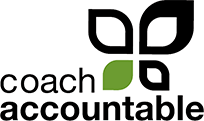Delightful Collaboration XIV: Appointment Series Scheduling for Clients
I remember cooking up the functionality for coaches to schedule a regular series of Appointments long ago. It was in CA’s first year of the (commercially viable) 2.0 release. I was in Bali at the time.

Lotta flexibility here for scheduling a regular series. Reads like a nice sentence, marching orders to be carried out for you!
I thought for a beat about adding this to the client side of things, but I thought “Nah”. There are a whole lot more constraints that clients are subject to when picking from specific date and time options and lookout windows, and back in those days I had LOTS of things to focus on to evolve the relatively nascent platform. It was well enough to keep that scheduling one at a time!
And of course these days the rules for client scheduling come with more constraints, thanks to the allocations and duration rules provided by CA Engagements. Great power for coaches to control and regulate how and when they can be scheduled with, but again, all the more at odds with letting a client willy-nilly choose to take the next 8 Tuesdays at 10:00am: there could be a dental appointment somewhere in there to break the streak!
So I figured the UI of having someone choose yet potentially often have some reason why the whole series is not be on offer made that feature perhaps more gnarly and unwieldy to use than it was worth.
 Then we got this email to support yesterday from Kirsten Chong of Building Champions, emphasis added:
Then we got this email to support yesterday from Kirsten Chong of Building Champions, emphasis added:
Hello,
I wanted to reach out and ask if you thought the ability for clients to schedule recurring sessions would ever be an option in CA?
The reason I’m asking is because we are getting this question more and more often from our clients and so I thought I would check.
I know internally we can do this and override blocked time, from the client’s side it would be great if they are told of the conflicts, and book everything BUT those dates.
Just an idea
Thanks!
Huh.
That’s elegant.
Yes.
It could give a little alert as needed, letting ’em know if there are some that are a no go, and in so many words just ask “You want the other ones?”
Why didn’t I think of that?
So today I spent about 3 hours and cooked up that functionality, deployed all tested and ready to go with 25 minutes to spare before my 11:00am.
I even made a nice little pop up that pops up if and whenever needed, letting the client choose what to do:

Can’t get the whole series? Then you get the full story of what’s so, and the power to choose.
I wrote back:
Ah, that’s a fine idea! I originally decided against adding the ability for clients to schedule series because of the possible conflicts and the difficulty it might be with the back and forth for a user who can’t override, e.g. if you want a series of 8 but only 6 are available, it gets tricky.
But you’re right, giving them the option to book what IS available in case there are any conflicts is an elegant way to manage this, balancing both the power and ability to manage when that power falls short.
This is now in place! Clients will now see the option to schedule series just like coaches do.
Enjoy!
John
I can’t deny, I relished in the reply I got 19 minutes later:
This is AMAZING!!! You rock John. Seriously. Thank you!!!!!
Thank you, Kirsten! That little bit of insight that made things come in to clear focus, and here’s to a slightly better CA for all!
Some folks (looking at you, enterprise buyers) get a little nervous about our size as a tiny team, but this to me is the delight of running things a bit unorthodox. I would be having way less fun (and CA wouldn’t be nearly as good) if I had to coordinate across several teams with disparate priorities to make this sort of thing happen as a Tier-3 Priority™ for next quarter’s Roadmap Release Initiatives®, or whatever.
I’ll take my means and manner of delightful collaboration with customers any day. :)




 The impetus for this instance of delightful collaboration came as a simple question.
The impetus for this instance of delightful collaboration came as a simple question. This one comes from Michiel Bosman of
This one comes from Michiel Bosman of 